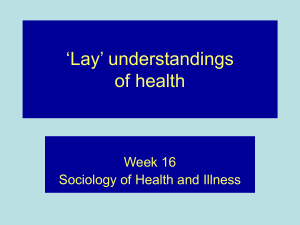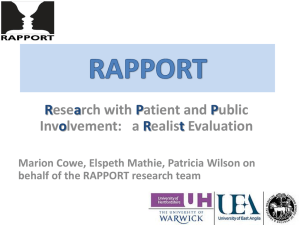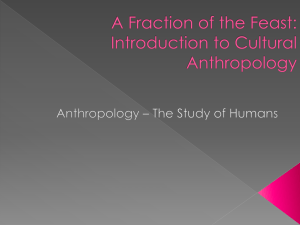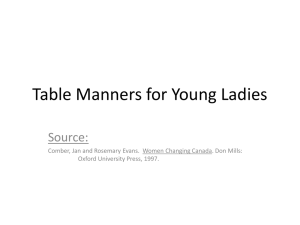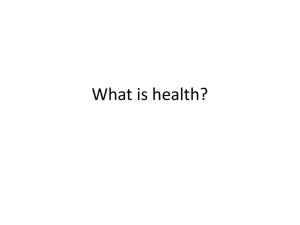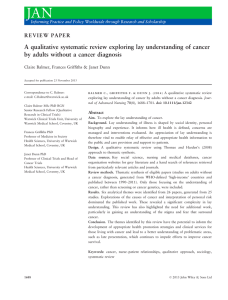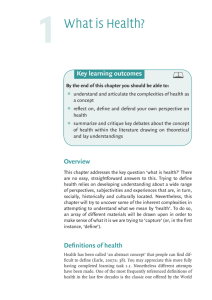What is Health
advertisement
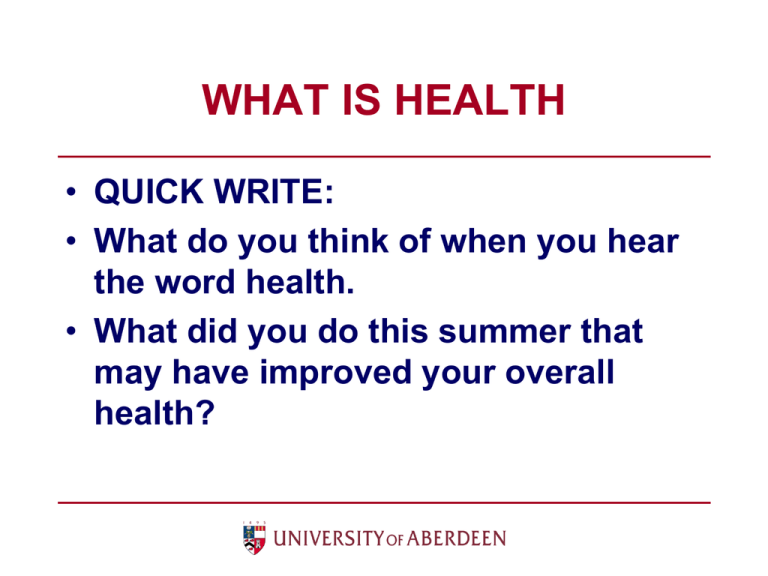
WHAT IS HEALTH • QUICK WRITE: • What do you think of when you hear the word health. • What did you do this summer that may have improved your overall health? Aims • Explore the notion of health from a variety of perspectives including professional and lay viewpoints related to age, gender, social class and culture. • Appreciate that there are a range of views about the nature of health. • Introduce the concept of “models” of health. • Highlight the Evans and Stoddart model to set the scene for future lectures. Personal health beliefs Think about the last time you experienced yourself as “healthy”. Jot down a few phrases that describe the feeling, and the context. Who is the healthiest? Defining health • Official or professional definitions • Popular or lay definitions. Negative, Professional Definitions • So called bio-medical or scientific view of health. • Health as the absence of disease. • Health as the absence of illness. Definitions • Disease – presence of pathology or abnormality in a body part • Illness – feelings of anxiety, pain or distress usually associated with a disease Positive/Holistic, Professional Definitions World Health Organisation, 1947 • “A state of complete physical, mental and social well-being rather than solely as absence of disease” Professional Definitions Positive/holistic views • Health as an ideal state • Health as physical and mental fitness • Health as a commodity • Health as personal strength or ability • Health as the basis for personal potential. Lay beliefs - being healthy / being ill • 9000 individuals questioned:- – Absence of disease. – Physical fitness – Functional ability Blaxter (1995) Health beliefs change throughout the life-course Lay health beliefs - Age • Older people concentrated on functional ability • Younger people tended to speak of health in terms of physical strength and fitness Blaxter (1995) Lay health beliefs - social class. • People living in difficult economic and social circumstances regard health as functional – the ability to be productive, to cope and take care of others. Blaxter & Paterson (1982) • Women of higher social class or with higher educational qualifications have a more multidimensional view of health. Blaxter (1995) Lay health beliefs - gender. • Men and women appear to think about health differently • Women may find the concept of health more interesting • Women include a social aspect to health. Blaxter (1995) The causes or determinants of health So far we have discussed what we mean by “health” Now I want you to think about what may cause some people to be healthy while others are not Main learning points • Health is conceived differently depending on whether you are a professional or not, where you live, what circumstances you find yourself living in, how old you are and whether you are a man or a woman. • There are a variety of “models” of health which have sprung from social scientists and others attempting to define what health is and what causes health and ill health.
